
http://www.eldercare.com/modules.php?op=modload&name=CG_Resources&file=article&sid=965
Elder Care Across The Globe By Natasha Curry
Whose responsibility is it to care for the aging members of society? Is elder care something we should expect the state to provide? Or is it the duty of the family and community? Answers to this essential question vary widely across the globe, with some countries relying almost exclusively on government support, while in others, families shoulder the entire responsibility.
So who's got it right? And how many different ways of caring for the elderly are there on our aging planet? Let's look at a few radically different situations.
Germany
Germany, one of the most economically developed Western nations, relies on a balance of family care and state-subsidized initiatives to care for its growing elderly population. There are one million elderly German citizens who need regular and intensive care, and this duty usually falls to a close female family member, married, between 40 and 55 years old.
One of the main problems with this set-up is that many of these women work full time, and, due to the lack of employer support, find it very hard to balance their work and caregiving duties. As a result, one in ten caregivers is forced to quit work to be able to care for their loved one. There are surprisingly few community services for caregivers to turn to -- only 25 percent of family caregivers are supported by services such as daily in-home services, day care centers or facilities for short-term care.
On the more positive front, Germany introduced a mandatory long term care insurance law in 1994 which covers the whole population. It is financed by contributions made by employers, employees and pensioners, and offers benefits in either cash or in services. The care recipient can choose to pay informal caregivers, usually a family member, or to hire a professional in-home service.
Mexico
Caregiving in Mexico, regardless of employment status or social standing, is seen as the primary duty of the family. Since pre-Hispanic times, family links in Mexico have been extremely strong and as a result caregiving of the elderly, sick and poor is a socially recognized responsibility of the family, including all members of the extended family.
As a result, family members expect to care for their elderly relatives. However, young adults generally ensure their own needs are met first, then the needs of their children, then the needs of the elders. Consequently, the care many elders receive may not be sufficient. A study in 1989 of 770 elderly women showed that 4 percent said they were very unhappy with their lives.
Mexican work organizations and the government have not developed any policies, services or benefits to support family caregivers. There are however several types of government, workplace and community services for people 60 years of age and older, including pensions, health care, long term care, social services and advocacy services.
Indigenous Mexicans however have a different story to tell. They receive far fewer government services than the rest of the population, due in part to their rural location. Elders within this community rely almost totally on their extended families for assistance.
Uganda
Uganda is one of the poorest countries in the world, with 50 percent of the population living on less than $1 a day, 58 percent without access to clean water and only one doctor for every 25,000 Ugandans. It should come as no surprise to learn therefore that life expectancy is low, at 45 years of age.
However, almost 4 percent of the population manages to live past the age of 60; a figure that is expected to grow significantly this century.
Caregivers in Uganda have to give both materially and physically to their aging relatives. Few Ugandan seniors have any kind of retirement funds, and are often unable to meet all of their needs. There are no formal, governmental elder care services in Uganda: families or others in the community have always assumed responsibility for the care of the elderly. This responsibility is steeped in the social fabric of the country. Elders are regarded with the utmost respect throughout the community. Parents still look forward to the day when they can relax and be taken care of by their offspring or grandchildren. They expect to be supported in return for the care they gave to their children. However, as increasing numbers of Ugandans move to the cities in search of work and a better life, these traditional roles are being abandoned. To compound this problem, elderly women are often driven from their homes when their husband dies, as his direct relatives have the right to seize any land and property.
Uganda's National Social Security Fund does not cover nursing homes and home care services for the elderly. Instead, the Church of Uganda was one of the first institutions to establish services for seniors. Known as The Old Age Campaign Center, it offers residential care to destitute elders who have no family to care for them. However, such formal care is seen as being un-Ugandan, and a radical departure from the traditional way of life.
Sweden
Sweden is often hailed as the paragon of elder care, and the statistics do seem to support this. Sweden has proportionately more elders than almost any other country in the world. Elder care is a responsibility divided between the family and society. Until 1956, elderly parents could demand, by law, to be cared for by their children. Then in 1982 the Swedish Social Services Act established the legal right of the individual to assistance from society. In 1997, over 94 percent of the elder care in Sweden was provided by the state in some way or another.
Informal caregivers are paid by the government through a Paid Caregiver Program. The salary is determined by the elder's care needs, and proportion to the number of hours deemed necessary to perform the required care. The paid caregiver receives all the benefits of social insurance, plus the pension credits he or she would have received in regular employment. Employees are also entitled to a maximum of 60 days paid time off from their workplace to care for elderly family members.
Sweden's social insurance program provides universal health care and pensions for all its citizens. These programs enable most seniors to live a relatively comfortable life. In 1995, about 8 percent of people age 65 and older, and 23 percent of people age 80 and over, lived in some kind of care facility.
***
These four scenarios paint very differing visions of elder care across the globe. Before we all apply for immigration to Sweden, it's important to remember that the changing picture depends heavily on differing societal and cultural expectations. Our assumptions about what is "good" care and what is "bad" care may be far from the reality.
A recent Global Aging Report prepared by AARP discovered:
• Most older Dutch prefer to live independently of their children
• Italians on the other hand strongly favor children supporting parents, and both generations see living together as a desirable option.
What is noticed across the globe however, is that governments are starting to sit up and take notice of their elder citizens, and realizing that the aging of their populations, combined with more and more women (the traditional caregivers in just about every nation) entering the workplace, may demand a greater state responsibility.
Many of the statistics in this article are taken from "Work and Caring for the Elderly" by Viola Lechner and Margaret Neal.
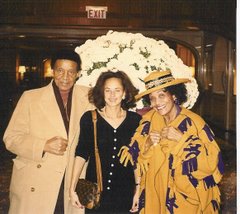
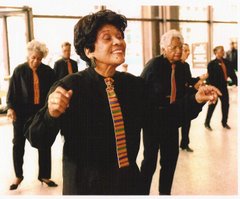
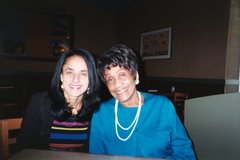
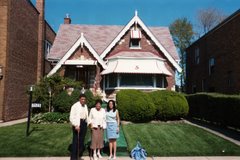
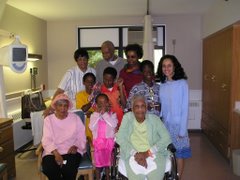


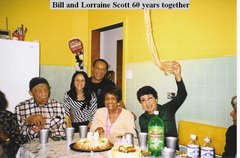



.jpg)
No comments:
Post a Comment